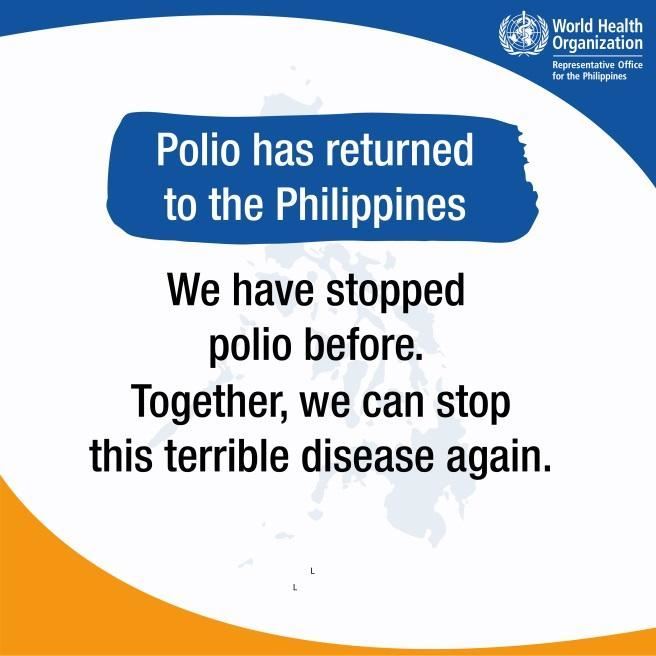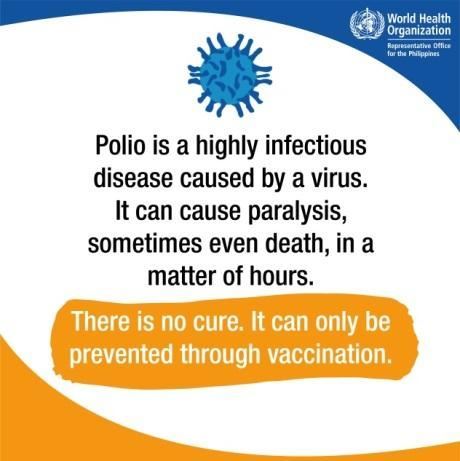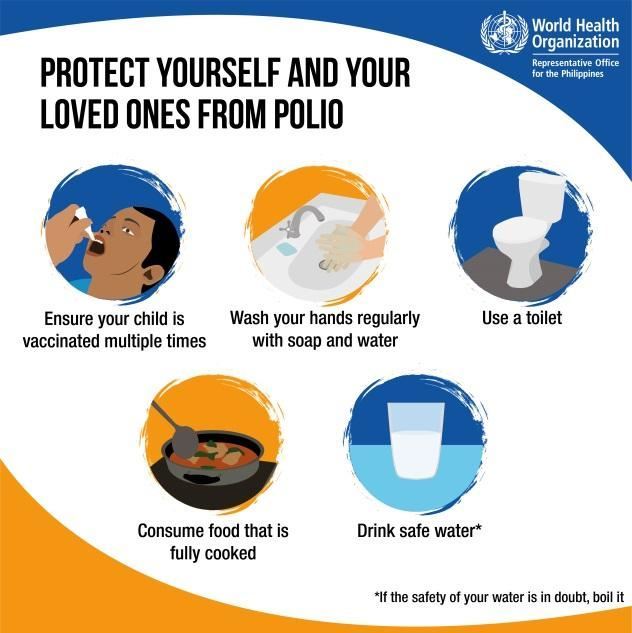
Poliomyelitis, or simply polio, is an infectious disease caused by the poliovirus which affects the central nervous system.
The poliovirus is usually spread via the faecal-oral route i.e. when food is contaminated through unhygienic preparation, or contaminated water is consumed.
Humans with a healthy immune system can be carriers and not display any symptoms.
Is there a Polio outbreak in the Philippines?
The Philippines declared an outbreak of polio last September 19 as reported by the World Health Organization (WHO). The first case was confirmed to have originated in Lanao del Sur, Mindanao after 19 years. Historically, polio has been eradicated in the Philippines since 2000 largely due to the massive government and WHO campaign called the GPEI (Global Polio Eradication Initiative).
How does Polio affect a person?
Polio may start as a flu-like syndrome with fever, headache, gastrointestinal disturbance and body weakness. A small percentage of those affected may have irreversible symptoms of neck and back stiffness with or without paralysis affecting the legs.

What is the treatment for Polio?
There is no cure for Polio once a person has been infected. The treatment is mainly supportive and is aimed at limiting or reducing the patient’s symptoms.
How can the spread of Polio be prevented?
Polio can be prevented through vaccination and good hand hygiene.
Most adults are protected via the completion of the childhood immunization programme. Aside from proper vaccination, other ways to protect yourself and your loved ones include: proper handwashing with soap and water, ensuring that drinking water is safe and eating food that has been fully cooked.

How can travellers from the Philippines prevent the spread of Polio?
As part of the campaign to stop the spread and eventually eradicate polio globally, travellers are highly advised to have a polio vaccination booster especially when travelling outside the Philippines. These vaccines are recommended to be given 4 weeks prior to travel or if you are in the Philippines for more than 4 weeks.
The WHO further recommends proper documentation of polio vaccination on an International Certificate of Vaccination or Prophylaxis (ICPV) yellow card. This will give travelers scheduled to travel outside the Philippines proof of their immunization.
Two forms of the vaccine are available: the oral polio vaccine (OPV) and the inactivated polio vaccine (IPV). OPV is given by mouth as the virus may thrive in the mouth and digestive tract thus providing immunity in these organs and decreases the risk of human-to-human transmission. IPV is injected on the arm and provides immunity in the blood and individual immunity.
Adults who have completed polio vaccination during childhood only need one booster dose of the IPV as per the Philippines Department of Health. Adults who have had no previous vaccinations or have unrecalled status should receive 3 doses of the IPV.
Dr. Irene Umayam, International SOS Philippines